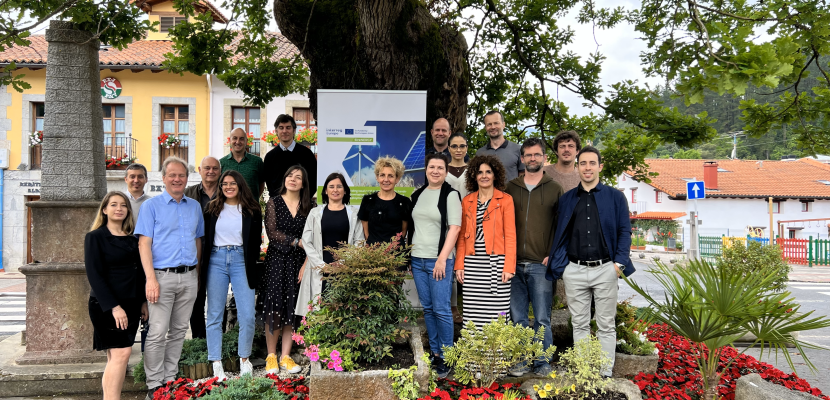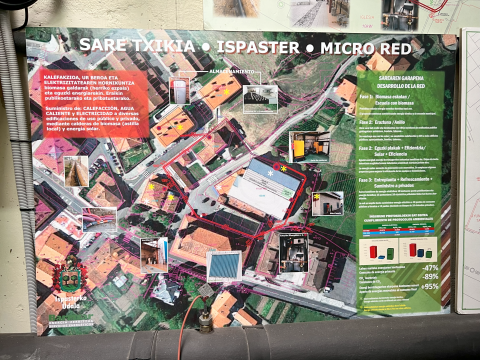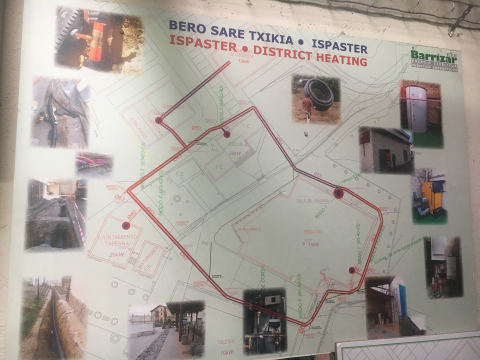
Ispaster District Heating: Citizens’ and Municipality involvement

About this good practice
Ispaster is a 22 square kilometers village located in The Basque country with 740 inhabitants. Their main goal is to be autonomous and to have an isolated energy island based 100% on RES, and this objective is achieved with social acceptance and citizen involvement.
Ispaster has 1,000 square meters of roofs suitable for solar installations and the possibility of obtaining 1,200 tons per year of residual forest biomass. Based on this potential, they have opted for renewable energies to be self-sufficient in energy and achieve a stable price in consumption.
Main results of the Good practice are:
- To produce sustainable energy, in a cooperative way where citizens are the owners of the project
- To put consumers at the heart of the energy transition by converting them into Prosumers"
This project has two main phases, the ring-shaped alignment of Ispaster´s district heating project and the energy community for the generation of photovoltaic energy from the roofs of private buildings.
In both processes, communication about the objectives to be achieved and the dynamics of citizen participation were key to guaranteeing the overall success of the project. acceptance and citizen participation were key to the success of the project.
Expert opinion
Resources needed
Budget since 2013: 1 million euros. The municipality has received the following funds:
• Basque government: funds for investment in rural areas
• Funds for the promotion of renewable energies managed by EVE (Basque Energy Agency)
• Bizkaia county council: environmental area
• Horizon2020: LocalRES
Evidence of success
The percentage of local renewable energy exceeds 75% in all consumption of the micro grid.
The supply comes from the energy generated by the biomass boiler and from solar energy (photovoltaic and thermal). Compared to the previous energy system, energy consumption has been reduced by 32% and CO2 emissions by 92%.
Impact in: 10 public buildings and and 12 nearby private buildings.
Active participation of citizens: workshops every 15 days which serve as a platform for debate and collaboration.
Potential for learning or transfer
This project, which began as an initiative driven by the municipality to supply thermal and electrical energy to public buildings, has expanded to involve citizens both in consumption and generation. It was named as “pilot project” in Bizkaia by EVE (Basque Energy Entity) as a project of interest. In 2013, informative talks were held for citizens to present the defined plan for energy self-sufficiency and gather contributions.
With the aim of further promoting the implementation of the necessary technologies to achieve the goal of energy self-sufficiency, but also based on citizen acceptance and participation, Ispaster is participating in the localRES Horizon 2020 project. A participatory process is carried out in which citizens actively participate through bi-weekly meetings in defining the energy community they desire.
The enthusiasm and dedication of Ispaster residents have been instrumental in getting this project on track.
Further information
Images
Website
Good practice owner
You can contact the good practice owner below for more detailed information.



